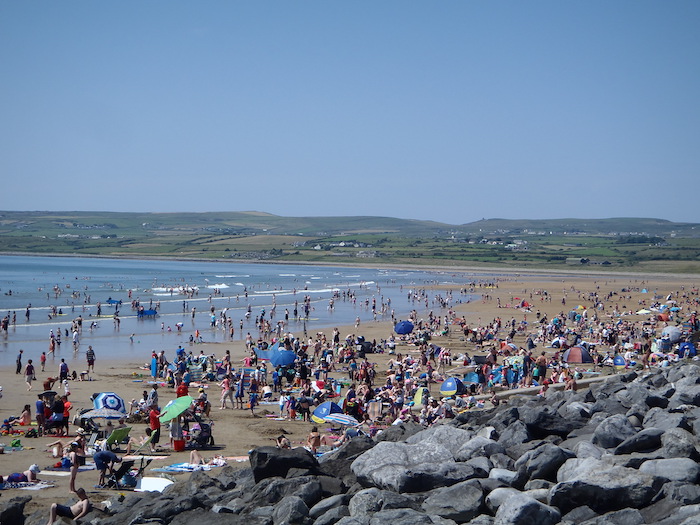
A country’s development has long been measured primarily using the aggregate gross domestic product (GDP). GDP represents the value of all the goods and services produced in an economy, usually calculated on an annual basis. While GDP was never intended to be used as a definite measure of a country’s well-being, its maximisation has been a key objective of public policy. Should this continue? This traditional measure of economic growth is not a measure of sustainable development, and maximising GDP can conflict with other goals, such as the protection of the environment. Indeed environmental economists have argued for decades that a source of many of our environmental problems lies in a failure to account for the valuable services provided by nature in our system of national accounting.
Substantial efforts are being made to produce “greener” national accounting measures and the United Nations has led on the development of an international standardised framework for environmental accounting that is compatible with the existing system of national income accounts. If we develop an accurate estimate of our natural capital, we can then develop environmentally adjusted macroeconomic indicators to complement GDP. By accounting for the depletion of our natural capital assets alongside existing estimates of depreciating physical capital stock, we gain a much greater understanding of the sustainability of the economic developments taking place.
Growing up on the shores of Galway Bay, I had at a strong connection with the sea from an early age. Later in my life, I learned that my academic interest in environmental economics could be used to examine how we might sustainably develop Ireland’s marine resources, and that has been the focus of my research ever since. Based in the Whitaker Institute for Innovation and Structural Change at NUI Galway, the Socio-Economic Marine Research Unit (SEMRU) conducts research on a variety of marine related issues. As Director, I have worked with my colleagues at SEMRU to pursue a research program that promotes sustainable development – ensuring that natural resources and ecosystem service values are not only considered but also mainstreamed into development planning, and national and ocean economic accounts. Led by Dr. Luke McGrath, SEMRU have contributed to improved practical and theoretical grounded indicators of sustainable economic development in Ireland and further afield. (1)
The research adjusted existing accounting measures to include a broader range of natural asset changes, such as forestry growth, peat depletion and the largest coverage of air pollutants in the literature. In doing so, we have conducted a sustainable development assessment across a range of European countries and re-assessed Ireland’s economic history since the foundation of the state from the vantage of sustainable development. The project builds on the well-known World Bank green accounting measure known as Genuine Savings. Genuine Savings attempts to incorporate changes over the defined accountancy period in all broadly defined capital resources (natural, physical, social, and human) and technological advancement of an economy. The results of the SEMRU research showed that the construction of country-specific GS estimates that focus on individual national characteristics – and a more comprehensive set of pollutants data – can considerably diverge from the World Bank’s assessment of the sustainable development pathways of a nation.

SEMRU is probably best known for its analysis (in partnership with the Marine Institute) of the economic importance of the Irish ocean economy. The truth of the matter is that the benefits offered by the seas around Ireland to the nation are not fully captured in the accounts of fishermen, ports or other marine related industries. Although these non-market ecosystem services are difficult to quantify in monetary terms, efforts to do so should be made as this information might otherwise remain outside of the economic decision-making of local, national and international governments – leading to inefficient allocation of marine resources. Environmental economists have developed a number of methods to value these ecosystem service benefits. Since its establishment in 2008, SEMRU has been leading the charge on valuing the marine ecosystem services around our coasts and incorporating these values in cost-benefit analyses of marine related policies.
As part of an EPA funded project, SEMRU estimated the significant contribution that marine ecosystem services make to Irish society. These estimates clearly demonstrated that the value of such services exceeds the output value of marine industries in the ocean economy. (2) That work, led by Dr Daniel Norton, has fed into the Irish Government’s assessments of the state of the marine environment (a requirement under the EU Marine Strategy Framework Directive). Through its work on EU projects such as Atlas, MERCES and MOSES, SEMRU has also estimated the values associated with the conservation and restoration of marine ecosystems. Such work influenced the report by the Department of Housing, Local Government and Heritage on expanding Ireland’s Marine Protected Area network, and I chaired the Economic, Social and Cultural Perspectives component of the advisory group that authored the report.
Nature Based Solutions
The concept of nature-based solutions (NBSs) is now central to many countries’ climate adaptation policies, as well as the European Green Deal which calls for systemic solutions for restoring biodiversity and ecosystem services. NBSs involve “actions to protect, sustainably manage and restore natural or modified ecosystems, that address societal challenges effectively and adaptively, while simultaneously providing human well-being and biodiversity benefits.” Knowing the costs and benefits of implementing such NBSs versus that of the more traditional grey, hard engineered solutions for challenges such as coastal protection and flood elevation is crucial, from a cost–effectiveness perspective.
SEMRU have made considerable progress in this space by examining the benefit values associated with the restoration of marine ecosystem services such as kelp forests, deep-sea canyons and native oyster reefs. The research on native oyster reef restoration in Galway Bay shows that the nature-based solution to protecting an at-risk coastal amenity (that is, restoring the native reefs and dampening the impact of storm surges) had a benefit-cost ratio multiple times larger than the grey infrastructure alternative of (revetment/seawall). (3)
This research was of considerable interest to the European Commission, given the policy demand for cost effectiveness analysis in coastal NBSs, where evidence is presently lacking. The study is a clear example of SEMRU’s and NUI Galway’s strategic ambition to examine issues of local importance and value that nevertheless have global relevance. Consideration of the valuable services provided by nature – particularly the marine environment – in our system of national accounting and in project appraisal will not on its own solve the numerous challenges faced by society. It can however provide key information to help policy-makers better understand the trade-offs involved in their decisions.
(1) McGrath, L., Hynes, S., J. McHale (2022). The Air we Breathe: Estimates of Air Pollution Extended Genuine Savings for Europe. Review of Income and Wealth 68 (1), 161-188 and
McGrath, L., Hynes, S., McHale, J. (2019). Augmenting the World Bank’s estimates: Ireland’s genuine savings through boom and bust. Ecological Economics, 165, 106364.
(2) Norton, D., Hynes, S. and Boyd, J. (2018). EPA Research Report No 239: Valuing Ireland’s Coastal, Marine and Estuarine Ecosystem Services, EPA Publications, Wexford. Accessible here.
(3) Hynes, S., Burger, R., Tudella, J., Norton, D. and Chen, W. (2022). Estimating the costs and benefits of protecting a coastal amenity from climate change-related hazards: Nature based solutions via oyster reef restoration versus grey infrastructure. Ecological Economics, 194, 107349
Profiles

Stephen is a Professor in the Disciple of Economics at NUI Galway. He is also the director of the Socio-Economic Marine Research Unit. Stephen is currently the Principle Investigator on a number of large multi-disciplinary projects including the Marine Institute funded "Valuing and understanding the dynamics of Irelands Ocean Economy" and is lead partner on the EU INTERREG funded MOSES project. He is also a partner on the EU Horizon 2020 funded MERCES and ATLAS projects. With a strong background in applied environmental/natural resource economic research and extensive work experience in econometric modelling, he has previously worked as an environmental economist in the Rural Economy Research Centre, Teagasc.